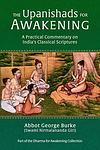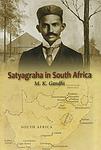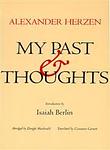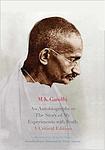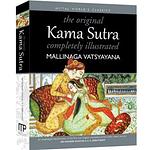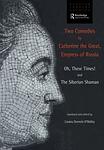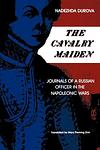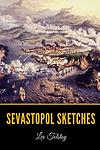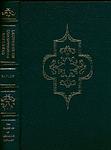The Greatest Russian, Indian "Nonfiction" Books of All Time
Click to learn how this list is calculated.
This list represents a comprehensive and trusted collection of the greatest books. Developed through a specialized algorithm, it brings together 300 'best of' book lists to form a definitive guide to the world's most acclaimed books. For those interested in how these books are chosen, additional details can be found on the rankings page.
Genres
Countries
Date Range
Reading Statistics
Click the button below to see how many of these books you've read!
Download
If you're interested in downloading this list as a CSV file for use in a spreadsheet application, you can easily do so by clicking the button below. Please note that to ensure a manageable file size and faster download, the CSV will include details for only the first 500 books.
Download-
1. The Gulag Archipelago by Aleksandr Solzhenitsyn
"The Gulag Archipelago" is a comprehensive and stark account of the Soviet Union's forced labor camp system. The narrative, based on the author's own experiences as a prisoner and on extensive research, documents the history, operation, and life inside the Gulag system. It also provides a critical examination of the regime's legal system, police operations, and political leadership. The book is an intense indictment of the Soviet Union's totalitarian regime, revealing its brutality, inhumanity, and vast scale of its prison camp network.
-
2. Upanishads by Hindu scripture
The book is a comprehensive compilation of ancient Hindu scriptures known as the Upanishads, which are fundamental to understanding the core philosophies of Hinduism. The text delves into profound spiritual teachings and philosophical dialogues about the nature of reality, the self, and the universe, providing invaluable insights into concepts such as karma, reincarnation, moksha, and the ultimate truth of existence. It serves as a guide to spiritual enlightenment and self-realization, offering timeless wisdom for introspection and personal growth.
-
3. The Life Written By Himself by the Archpriest Avvakum
"The Life Written By Himself" is an autobiographical account by the Archpriest Avvakum, detailing his life as a religious figure in 17th-century Russia. The book chronicles his struggles, including his conflicts with the Russian Orthodox Church, his imprisonment, and his eventual execution. Avvakum's narrative provides a unique perspective on the religious and political climate of the time, showcasing his unwavering devotion to his faith and his unwavering determination to uphold his beliefs, even in the face of persecution.
-
4. Satyagraha in South Africa by Gandhi
This book is a personal account of the author's experiences during the Indian struggle for civil rights in South Africa. It details the development and implementation of the concept of Satyagraha, or non-violent resistance, as a means of combating social injustice. The book provides a unique insight into the author's philosophies and strategies of peaceful protest, including his belief in the power of truth and the necessity of self-sacrifice in the fight against oppression.
-
5. Bhagavad Gita by Unknown
The book is a 700-verse Hindu scripture that is part of the Indian epic Mahabharata. It takes the form of a dialogue between Prince Arjuna and the god Krishna, who serves as his charioteer. On the battlefield of Kurukshetra, just as the war is about to begin, Arjuna is filled with doubt and moral dilemma about fighting in the battle. Krishna imparts spiritual wisdom and guidance to Arjuna, addressing his concerns and leading him through a profound discourse on various philosophical concepts, including the nature of life, the soul, and one's duties. The text covers topics such as righteousness, devotion, and the paths to spiritual liberation, ultimately encouraging Arjuna to rise to his duty as a warrior with the understanding that the true self is eternal and beyond physical conflict.
-
6. My Past And Thoughts by Aleksandr Herzen
The book is a rich and vivid memoir by a prominent Russian intellectual and revolutionary who lived through a period of profound social and political upheaval. It combines personal narrative with philosophical reflections, offering a penetrating look at the author's life experiences, from his aristocratic upbringing to his involvement in radical politics. The work delves into the author's ideological development, his relationships with key figures of his time, and his observations on the social issues and political movements that shaped the 19th century. It is a testament to the author's profound engagement with the ideas of freedom, justice, and human agency in the face of an oppressive regime and a changing world.
-
7. My Childhood by Maxim Gorky
"My Childhood" is a poignant and powerful autobiographical account of a young boy's life in 19th-century Russia. The narrative explores the harsh realities of growing up in a dysfunctional family, with a cruel stepfather and an uncaring mother, against the backdrop of poverty and social unrest. The protagonist's struggles, resilience, and observations provide a vivid portrayal of the societal conditions of the time, while also illuminating the human capacity for hope and perseverance in the face of adversity.
-
8. State And Revolution by Vladimir Il’ich Lenin
This seminal political theory text delves into the role of the state in society and the necessity of proletarian revolution to dismantle the bourgeois state apparatus. It argues that the working class must seize state power, dismantle the existing state machinery, and establish a dictatorship of the proletariat as a transitional phase towards the creation of a classless, stateless society. The work critically analyzes the ideas of Marx and Engels on the state, while also addressing the practical aspects of revolution, including the suppression of the bourgeoisie by the proletariat. It serves as a theoretical foundation for understanding the dynamics of class struggle and the path towards socialism.
-
9. The Story Of My Experiments With Truth by Mahatma Gandhi
This book is an autobiography that details the personal journey of a prominent leader who played a key role in India's struggle for independence from British rule. It explores his philosophy of nonviolent resistance and truth, which he refers to as "Satyagraha," and traces his development from a young, unsure boy into a principled activist committed to social justice. The narrative delves into his experiments with diet, celibacy, and other personal challenges, reflecting his quest for self-improvement and moral integrity, which he believed were essential for political leadership and social reform.
-
10. Reflections of a Russian Statesman by Konstantin P. Pobedonostsev
"Reflections of a Russian Statesman" is an insightful exploration of the author's conservative and monarchist views on the political and social issues of his time in Russia. As a prominent figure in the Russian government, he provides a candid critique of western democracy, liberalism, and the separation of church and state. He advocates for autocracy, theocracy, and orthodoxy, arguing that these are the pillars of a stable and prosperous society. The book offers a unique perspective on Russian politics and society during the late 19th and early 20th centuries.
-
11. The Way of a Pilgrim by Anonymous
"The Way of a Pilgrim" is a 19th-century Russian Christian text that follows an anonymous protagonist on a spiritual journey across the country. The protagonist is a wanderer who seeks to understand the teachings of the Bible and the nature of ceaseless prayer. Through his travels and encounters with various people, he explores the concept of the Jesus Prayer and the philosophy of the Eastern Orthodox Church. The book is a profound exploration of faith, spirituality, and the quest for divine connection.
-
12. Kama Sutra by Vātsyāyana
This ancient Indian text is a guide to virtuous and gracious living that discusses the nature of love, family life, and other aspects pertaining to pleasure-oriented faculties of human life. It is a comprehensive manual on the art of love and sexual behavior, providing detailed advice on courtship, marriage, and the act of lovemaking. The text, while often associated solely with sexual positions, covers a wide range of topics including the duties and privileges of a wife, advice for courtesans, and methods to attract others.
-
13. Oh, These Times by Catherine the Great
"Oh, These Times" is a poignant and introspective memoir that delves into the personal experiences and challenges faced by the author, Catherine the Great. Through her candid and insightful narrative, she explores the complexities of ruling a vast empire, navigating political intrigue, and the constant struggle to maintain power and influence. With a blend of wit, wisdom, and vulnerability, Catherine offers a unique perspective on the tumultuous times she lived in, shedding light on the intricacies of leadership and the human condition.
-
14. The Memoirs Of Princess Dashkova by Ekaterina Romanovna Dashkova
"The Memoirs of Princess Dashkova" is a captivating autobiography that chronicles the remarkable life of a prominent Russian noblewoman. From her privileged upbringing and close relationship with Catherine the Great to her influential role in the Russian Academy of Sciences, Dashkova's memoirs offer a unique perspective on the political and cultural landscape of 18th-century Russia. With wit, intelligence, and a strong sense of self, Dashkova's narrative sheds light on her personal triumphs, challenges, and the turbulent historical events that shaped her life.
-
15. Memoirs Of A Revolutionist by Vera Figner
"Memoirs of a Revolutionist" is a captivating autobiography that chronicles the life of a remarkable woman, detailing her journey from a privileged upbringing to becoming a prominent figure in the Russian revolutionary movement. Through her personal experiences and reflections, the author provides a vivid account of the political and social upheaval in 19th-century Russia, shedding light on the struggles, sacrifices, and triumphs of those dedicated to the cause of revolution. This thought-provoking memoir offers valuable insights into the complexities of revolution and the indomitable spirit of those who fight for change.
-
16. Notes From The Blockade by Lydia Ginzburg
"Notes From The Blockade" is a poignant memoir that provides a firsthand account of life during the Siege of Leningrad in World War II. The author, Lydia Ginzburg, vividly describes the hardships, hunger, and constant fear experienced by the city's residents, while also exploring the resilience and strength of the human spirit. Through her powerful narrative, Ginzburg offers a deeply personal and moving portrayal of survival amidst unimaginable circumstances.
-
17. The Cavalry Maiden by Nadezhda Durova
"The Cavalry Maiden" is a vivid memoir of a young Russian woman who defies the conventions of her time by disguising herself as a man to join the Russian cavalry during the Napoleonic Wars. The narrative recounts her extraordinary experiences on the battlefield, her struggles with her secret identity, and her observations of military life during a tumultuous period in history. The author's passion for military service and her quest for personal freedom and adventure shine through as she provides a unique perspective on the roles of gender and social expectations in the early 19th century.
-
18. My Story by Kamala Das
"My Story" is an intimate memoir that delves into the life of a woman navigating the complexities of her existence in mid-20th century India. It candidly explores themes of love, marriage, and womanhood, as the author recounts her journey from a young girl to a renowned poet and writer. The narrative is marked by its honesty and emotional depth, addressing the author's unconventional choices and her search for personal freedom amidst the constraints of a traditional society. Her reflections on sexuality, fidelity, and the literary world offer a poignant look at the challenges faced by women in asserting their identity and creativity.
-
19. Sevastopol Sketches by Leo Tolstoy
The book is a collection of three short stories, each offering a vivid and gritty portrayal of the Siege of Sevastopol during the Crimean War. Through the eyes of various characters, ranging from a young and naive officer to seasoned and weary soldiers, the narrative delves into the brutal realities of warfare, the camaraderie among the troops, and the heroism and sacrifice on the front lines. The author's own experiences as a participant in the siege lend authenticity to the detailed descriptions of the battles, the strategies employed by both sides, and the daily struggles of life in the besieged city, ultimately presenting a poignant meditation on the nature of war and the human condition.
-
20. Journey From St. Petersburg To Moscow by Alexander Radishchev
This book is a seminal Russian work that takes the form of a travelogue, documenting the narrator's observations and reflections as he journeys between two major cities. Along the way, the narrator engages with various individuals from different social classes and discusses the social and political issues of the time, including serfdom, the justice system, and the condition of the peasantry. The work is notable for its critical perspective on the social injustices of 18th-century Russian society and is often regarded as a call for reform and enlightenment, which ultimately led to it being perceived as a threat by the authorities, resulting in the author's exile.
-
21. Fallen Leaves by Vasily Rozanov
"Fallen Leaves" is a collection of philosophical and autobiographical essays that delve into the author's musings on a wide range of topics, including religion, sexuality, and society. The work reflects the author's critical examination of modernity and the decline of traditional values, as well as his personal sense of isolation and disillusionment with the contemporary world. Through a series of fragmented and often controversial reflections, the author grapples with the existential challenges of his time, presenting a candid and introspective exploration of the human condition at the turn of the 20th century.
-
22. My Life by Leon Trotsky
This autobiography provides a detailed account of the life of a prominent Russian revolutionary and Marxist theorist. The book traces his early life, education, and political development, his role in the Russian Revolution and Civil War, his leadership of the Red Army, and his expulsion from the Communist Party and subsequent exile. It offers a unique perspective on key events in 20th-century history and an insight into the author's complex personality and intellectual development.
-
23. Conditioned Reflexes by Ivan Pavlov
"Conditioned Reflexes" is a groundbreaking work that delves into the study of behaviorism and the concept of classical conditioning. The author, a renowned physiologist, presents his findings on how an organism's responses can be triggered or conditioned by external stimuli, using his famous experiments with dogs as a prime example. The book significantly influenced the field of psychology and laid the foundation for future studies on learning and behavior.
-
24. Creatures that Once Were Men by Maxim Gorky
"Creatures that Once Were Men" is a collection of short stories that depict the harsh realities of life in the lower classes of Russian society. The stories are set in a night refuge for the homeless, where the characters, despite their grim circumstances, strive to maintain their humanity. Through their struggles, the author explores themes of poverty, addiction, despair, and the human spirit's resilience.
-
25. Resources, Values And Development by Amartya Sen
"Resources, Values, and Development" is a comprehensive examination of the interplay between the availability of resources, the values that guide their use, and the resulting impact on development. The book challenges traditional economic measures of development, such as GDP, and argues for a broader understanding that incorporates human welfare and freedom. It delves into the role of ethics in economics, the importance of individual capabilities, and the need for equity in the distribution of resources. The author's influential ideas on development economics and social choice theory are presented, advocating for a more humane and inclusive approach to economic development that prioritizes the enhancement of human lives over mere economic growth.
Reading Statistics
Click the button below to see how many of these books you've read!
Download
If you're interested in downloading this list as a CSV file for use in a spreadsheet application, you can easily do so by clicking the button below. Please note that to ensure a manageable file size and faster download, the CSV will include details for only the first 500 books.
Download
